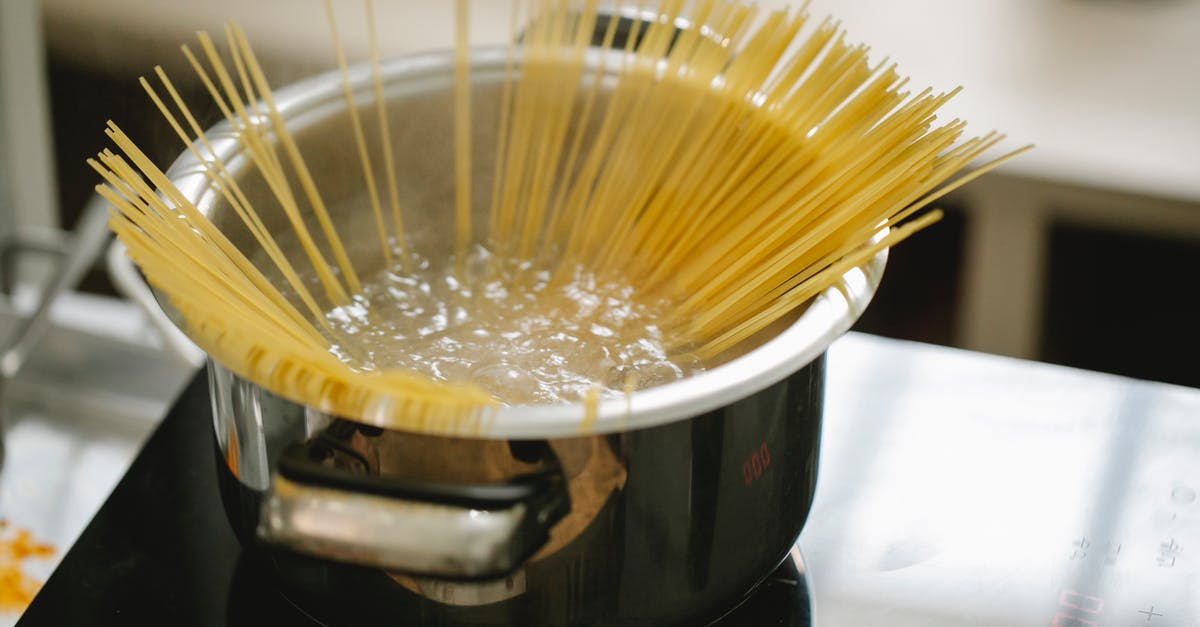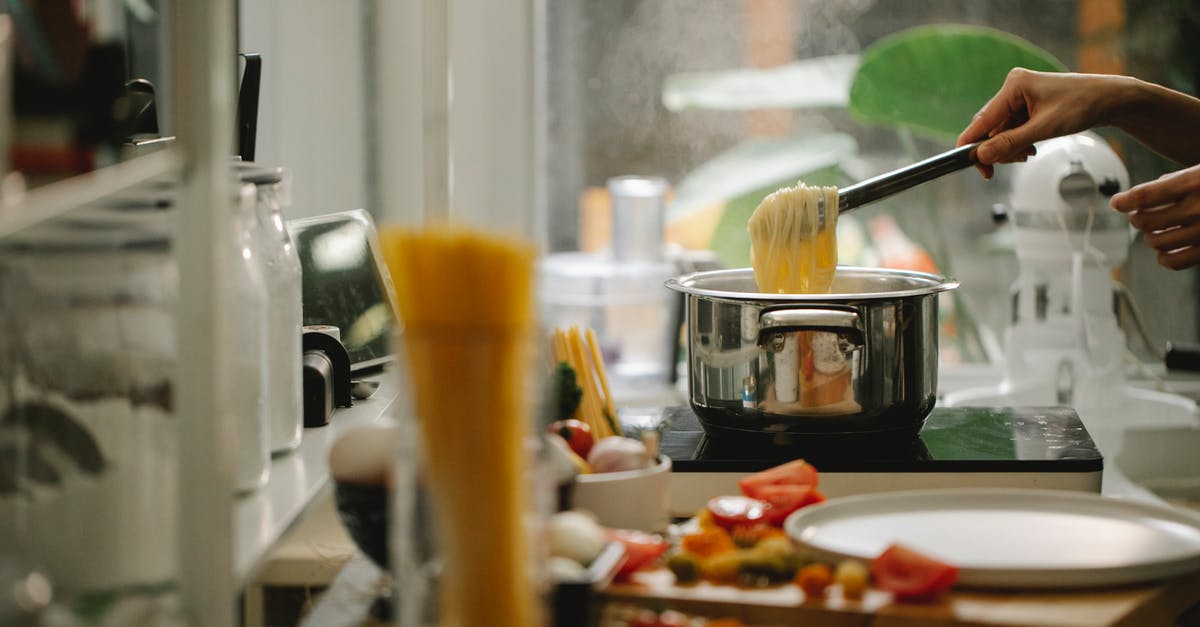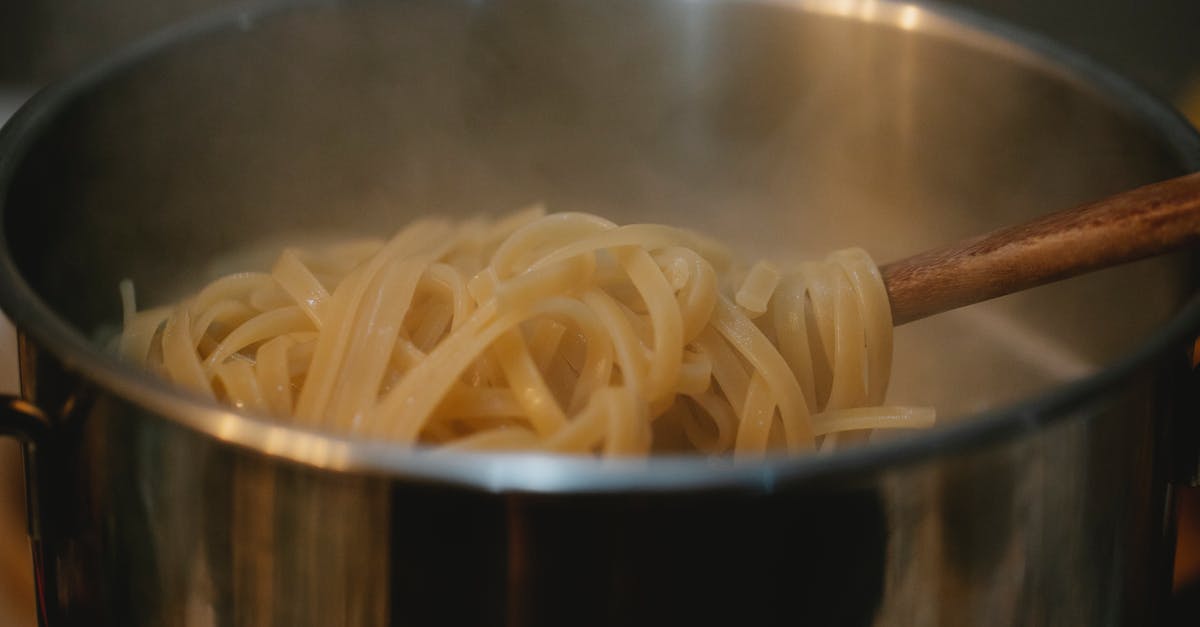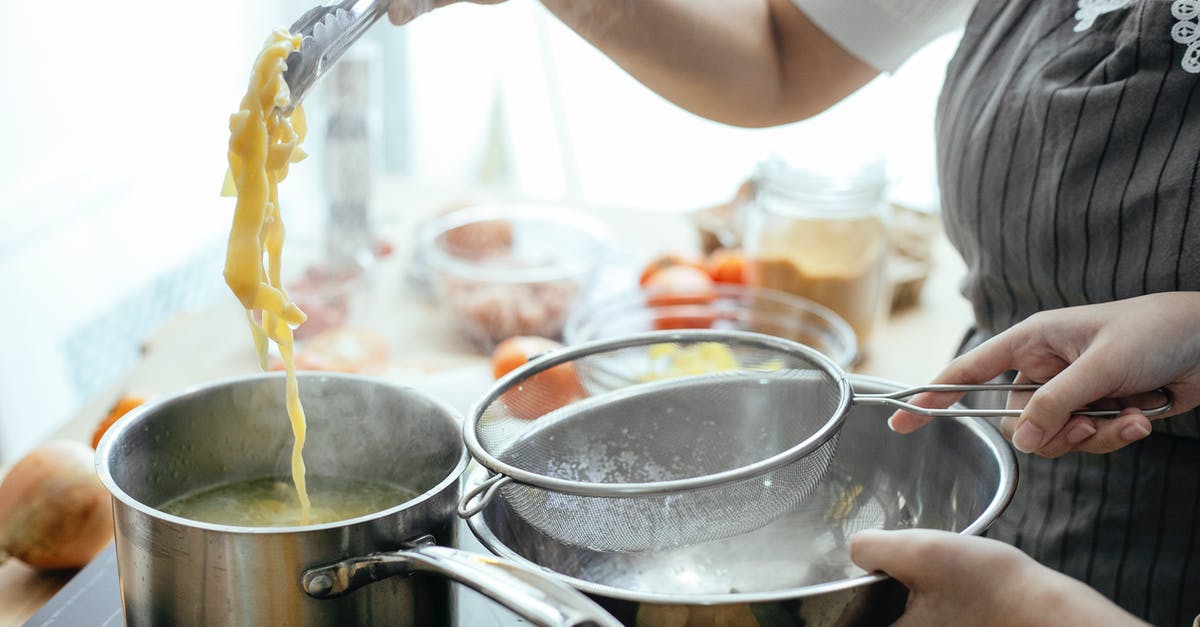How much water does pasta absorb when it is cooked?

How much water will dry semolina pasta absorb when it is properly cooked? For example, how much water would one pound of farfalle or spaghetti absorb?
I am guessing the shape of the pasta doesn't matter, just the absolute weight.
I am not looking for how much water is required to boil it, nor what temperature is required, just how much should be absorbed. I like my pasta cooked a minute or so past the box "al dente" stage.
The application is single burner cooking (I only have one available). I can make the sauce, then add additional water and pasta to cook directly in the sauce, making for only one burner being required, and only a single pot to clean.
I understand the actual amount will require due to the vagaries of how much evaporates, but I expect that to be a minor adjustment.
Best Answer
You need 1.1x as much water as pasta for al dente! I measured this myself, cooking penne rigate (in water, not sauce) - 200g of pasta weighed 420g after being cooked and thoroughly drained.
The estimate below from the nutrition facts is 1.4x, which probably corresponds to typical American overcooked pasta - a surprisingly large difference from mine. I'm guessing you'll be somewhere between, maybe 1.25x.
You can also ballpark it from nutrition facts. Cooked spaghetti has 31g carbs per 100g pasta, and dry spaghetti has 75g carbs per 100g pasta. So 100g dry pasta turns into 100g*75/31 = 242g of cooked pasta, meaning the added water was ~1.4x the weight of the pasta. So for a pound of pasta, that's 1.4 pounds or about 2 2/3 cups of water. Given people's tastes, this might be a little past al dente, so I would personally start with maybe 1.25 cups of water then add a little more if necessary. (I'll also try cooking pasta normally and weighing it if I get a chance.)
Note: if you have a significantly different variety of pasta, it will obviously behave differently. This is for pasta that's 13% protein and 75% carbohydrates. For the standard 2oz/56g (dry) serving on the package, it'll say 7g protein and 41-42g carbohydrates. I checked Barilla, De Cecco, Ronzonni, Garofalo, Safeway store brand, Trader Joe's store brand, and those nutrition facts, and they all matched. If you're branching out to other styles like whole grains or egg noodles, things will obviously change, but things are very uniform in the US.
Pictures about "How much water does pasta absorb when it is cooked?"



Quick Answer about "How much water does pasta absorb when it is cooked?"
Commonly Cooked Pasta absorbs up to 1.8 Times its Weight In these cases, pasta can absorb up to 1.8 times its weight in water or more the longer it is left to cook. Using this calculation, a pound of pasta would absorb up to a little over 3 cups of water in a 10 to 12 minutes period.Does pasta absorb water when cooking?
When you cook pasta in boiling water, it seems like these two processes go together\u2014but they don't have to. Pasta absorbs water at any temperature; it just does so quicker at higher temperatures.How much water does 100g of pasta absorb?
Cooked spaghetti has 31g carbs per 100g pasta, and dry spaghetti has 75g carbs per 100g pasta. So 100g dry pasta turns into 100g*75/31 = 242g of cooked pasta, meaning the added water was ~1.4x the weight of the pasta. So for a pound of pasta, that's 1.4 pounds or about 2 2/3 cups of water.How much water do you out in pasta?
Use about 4 quarts of water for every 1 pound of pasta. In general, the more pasta you are cooking, the more water you should use to prevent the pasta from clumping up too much in the pot.What is the ratio of dry to cooked pasta?
You will need roughly 1 cup (or 0.9 cups to be precise) of dried pasta to obtain 2 cups of cooked pasta. Generally, the ratio of dry pasta to cooked pasta is approximately 1:1.5 to 1:2, as the dry pasta tends to expand upon boiling/cooking, and it can easily double in weight.The Real Reason You Should Never Drain Pasta In The Sink
Sources: Stack Exchange - This article follows the attribution requirements of Stack Exchange and is licensed under CC BY-SA 3.0.
Images: Klaus Nielsen, Klaus Nielsen, Klaus Nielsen, Katerina Holmes
